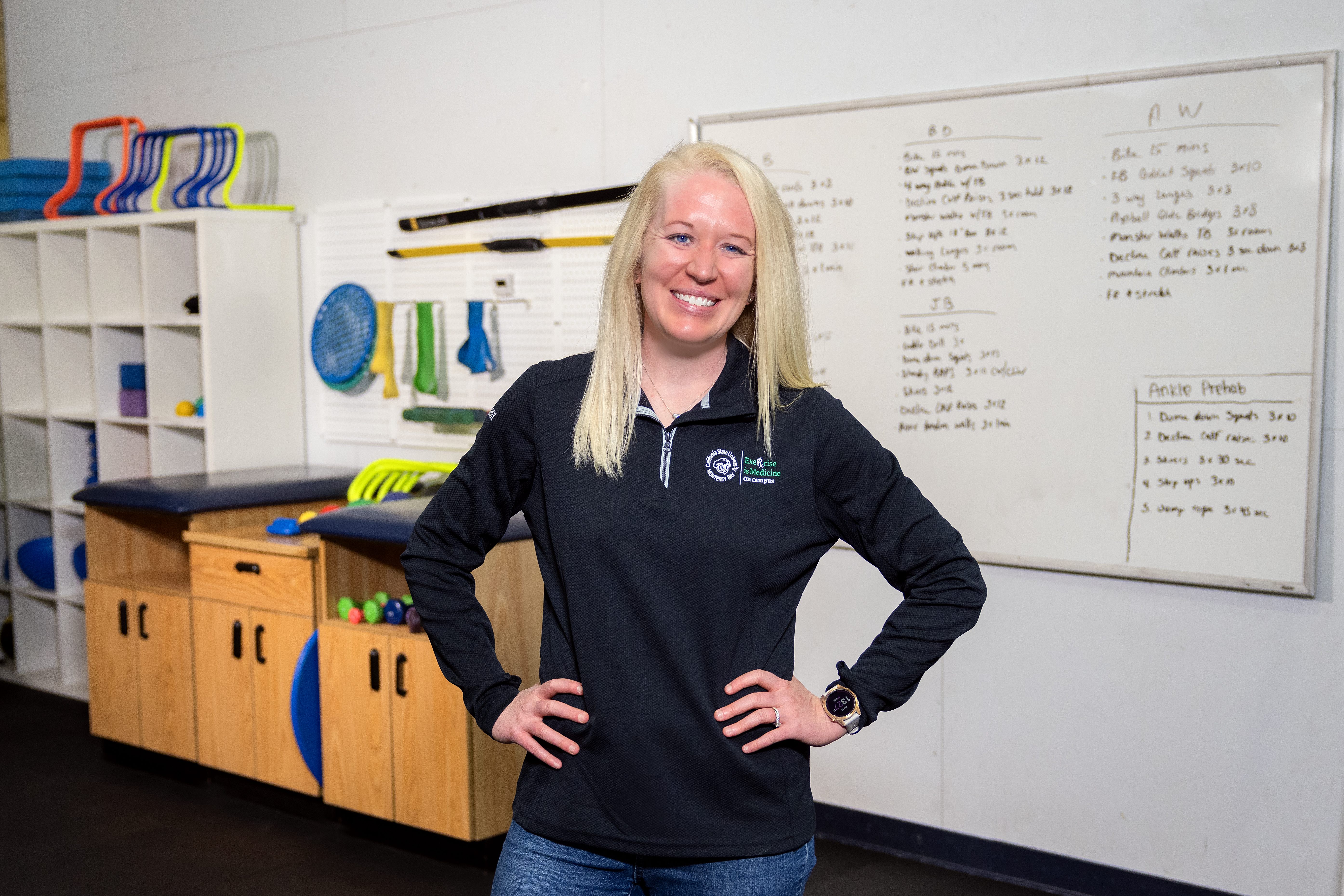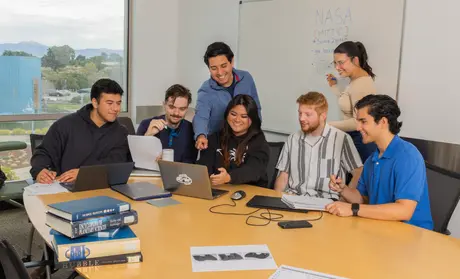By Mark Muckenfuss Most likely, you’ve heard this before: Do what you love. It’s a popular philosophy when it comes to picking a career path. But Sara Powell, an associate professor of kinesiology at Cal State Monterey Bay, says the same applies to staying physically active. “We put that pressure on ourselves that, ‘I should […]
/filters:quality(75)/0x143:4755x3027/prod01/channel_2/media/20241122_nasa_bda_001_2.jpg)

By Mark Muckenfuss
Most likely, you’ve heard this before: Do what you love.
It’s a popular philosophy when it comes to picking a career path. But Sara Powell, an associate professor of kinesiology at Cal State Monterey Bay, says the same applies to staying physically active.
“We put that pressure on ourselves that, ‘I should do this,’” Powell said. “But it needs to be, ‘I want to do this.’ That’s going to help sustain the motivation.”
As the new year rolls into view, many people like to take stock of their situation and set goals for the coming months. Those goals often include getting into better shape. Powell said the holiday period can be a particularly tough time for maintaining a physical regimen. With social obligations, vacation and traveling, New Year’s Day may find us all a little softer than we might like to be. She cautions even those used to a fitness routine about doing too much too soon.
“For someone who has been exercising four to five days a week but has been inactive for a month or more, you don’t want to go right back into that,” she said.
It’s better to start slowly and avoid the soreness associated with overworking one’s muscles.
Otherwise, she said, “It’s going to decrease your confidence for that activity and you’re going to feel like, ‘I’m just not going to do it.’”
For those starting from scratch, the same strategy holds true.
“When you’re trying to regain fitness or gain it for the first time, it’s a process,” she said. “It takes a lot of time. One of the things we really want to foster is that sustained motivation. We have that exciting, ‘It’s a new year, I can be a new me,’ feeling.”
It’s well-known, however, that most people who make the effort to begin a sustained exercise program give up within the first few weeks. Powell suggests that very often people’s thinking is not in line with their ambitions.
Powell specializes in sports and exercise psychology. She works closely with CSUMB’s athletic teams and with individual athletes on overcoming performance obstacles. She is also a Certified Mental Performance Consultant and works closely with the Exercise is Medicine On Campus initiative. She said it’s important to establish a realistic exercise regimen but it’s equally important to work on your mindset.
“We often don’t give ourselves the mental rigor we need to match the physical program,” she said. “Look at yourself and say ‘Why am I doing this?’ I often will talk to folks about motivation as if it was a fire. Once you get a fire going there’s a lot of heat and activity. Over time, if we don’t restoke that fire, it’s going to die out. You need to sustain that motivation by revisiting that core reason.”
A key to motivation is enjoyment, she said.
“Find a way to move your body that makes you happy,” Powell said.
Determine what sensation of physical activity feels good to you, she added.
“It has to come from the individual,” she said. “If it doesn’t truly align with that person’s enjoyment and activity level, it’s not going to last.”
Having a social connection can also help keep you on track to reach your goals.
“If you have people who support you,” she said, “that’s going to help sustain that sense of motivation. I call them accountabili-buddies. Whether they’re active with you or not, they can support you and say, ‘Hey did you meet your goals today?’ or, ‘How are you progressing?’”
Those partners don’t even need to be human, she said.
“A lot of us have a dog or a cat that we can take for a walk,” she said. “I saw someone walking an iguana the other day and I thought, ‘Good job.’”
Powell said meeting personal goals is just one aspect of a good exercise plan.
“There are a lot of benefits to physical activity,” she said. “People who are active are generally happier. We see gains in cognitive function. It also improves our sense of autonomy.”
Even moderate exercise has been shown to reduce the risk of heart disease, stroke and other conditions.
Powell said she encourages people to get involved with campus wellness programs such as Exercise is Medicine, which offers a number of ways to increase physical activity.














